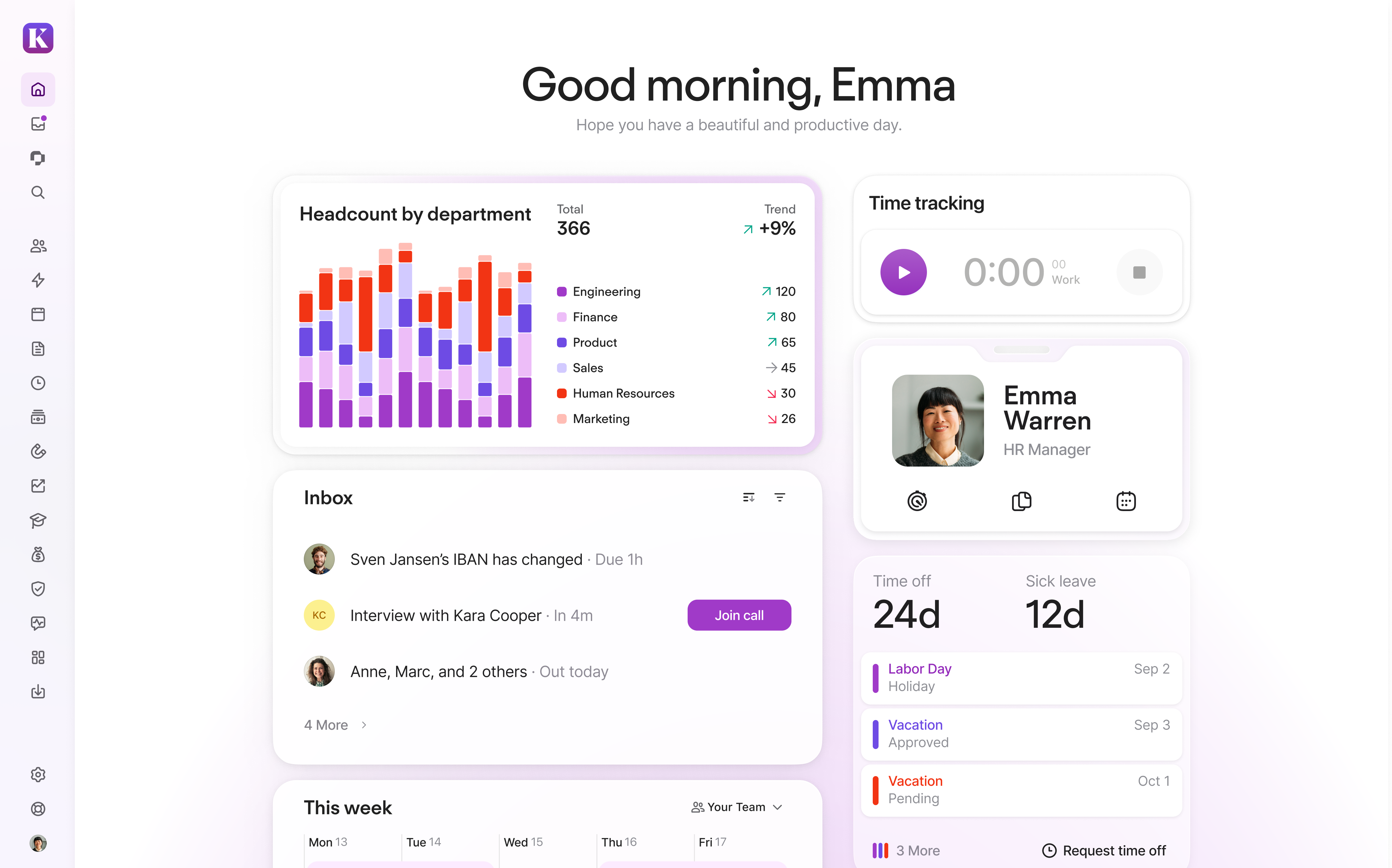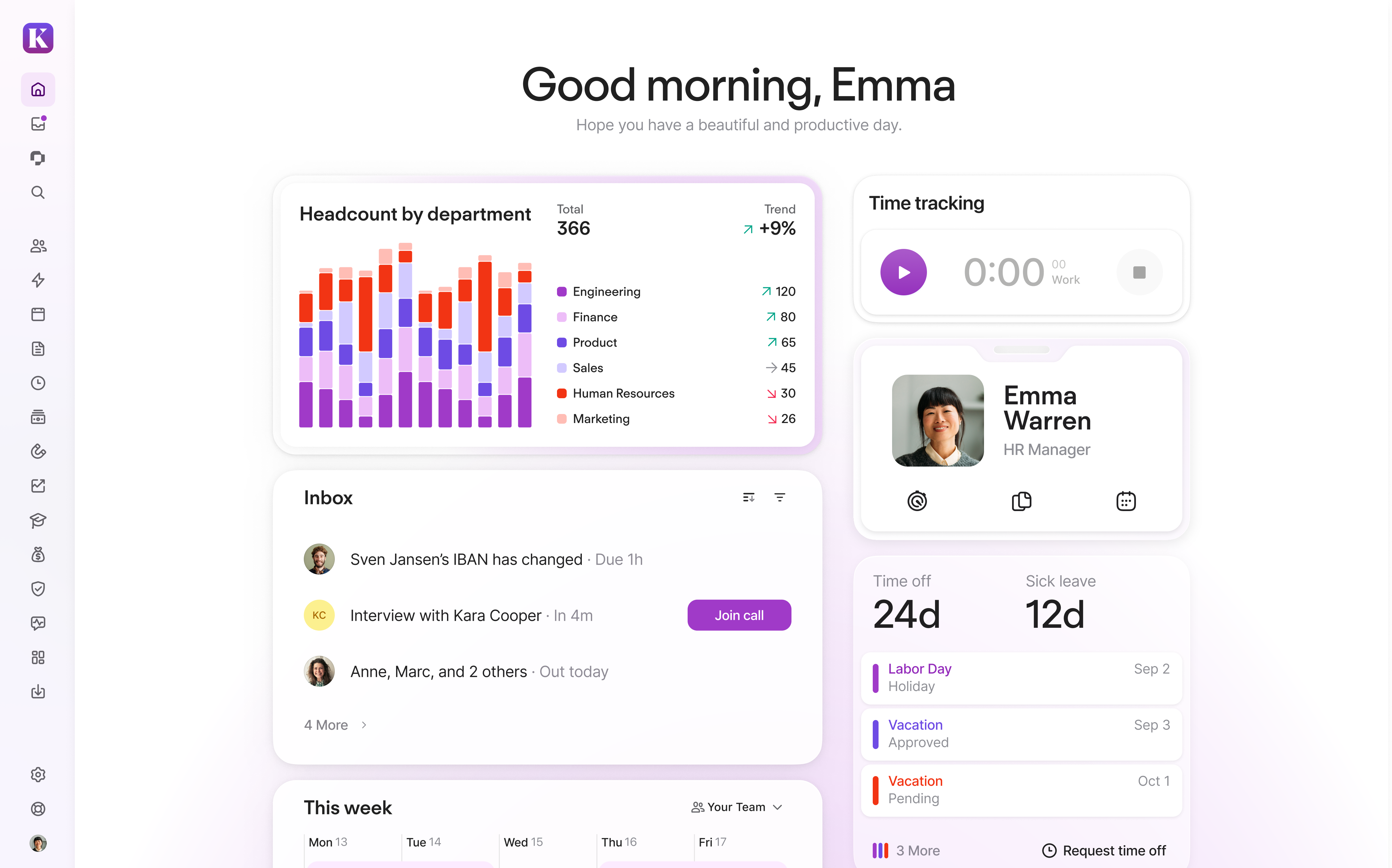Latest Blog Posts
A Guide to AI Training
Artificial intelligence (AI) is transforming the way businesses operate, from automating repetitive tasks to enhancing decision-making with data-driven insights. But to take full advantage of AI’s potential, organisations need more than just the right tools — they need people with the skills to use them effectively. That’s where AI training comes in.
In this guide, we’ll explore the different AI training courses available, why they matter for businesses of every size, and how HR teams can support employees on their upskilling journey.
What is AI training?
AI training is the process of equipping employees with the knowledge and skills they need to work effectively with artificial intelligence tools. This doesn’t just mean learning how to code or build machine learning models. AI training covers a wide range of skills, including:
Understanding how AI tools can support day-to-day tasks
Learning to analyse and interpret data with AI-powered platforms
Developing responsible approaches to AI use, including ethical and compliance considerations
Building confidence in using AI alongside human decision-making
For some employees, an AI training course may focus on basics like using AI to streamline reporting. For others, especially in technical or data roles, training may involve deep dives into programming, algorithms, or model optimisation.
Why is AI training important for businesses?
AI isn’t just a passing trend, it’s already reshaping industries. Organisations that invest in training for AI are better positioned to:
Boost productivity: Employees who understand AI can use it to automate repetitive tasks, freeing up time for more strategic work.
Strengthen decision-making: Teams trained in AI can draw insights from complex data more effectively.
Improve competitiveness: Companies with AI-ready workforces are more agile and innovative than those without.
Retain talent: Offering opportunities for employees to join online AI training courses shows commitment to professional development, making staff more likely to stay.
Insights from the Workforce Pulse 2025 report
Personio’s Workforce Pulse 2025 reveals a clear disconnect between employee enthusiasm and organisational support for AI training. Only 36% of employees say they receive adequate training, while 44% want more help. Those lacking support are 35% more likely to be job-hunting.
However, the benefits of training are tangible. Employees with adequate AI training report higher motivation, productivity, and trust in leadership. Meanwhile, 66% believe their skills will remain relevant as AI evolves, and nearly half are already upskilling, despite limited employer support.
HR teams have a critical role to play. With 65% of HR leaders prioritising skills-based hiring, and many investing in better training, tracking, and automation, businesses have the tools to close the gap and future-proof their workforce.
What types of AI training are available?
There’s no one-size-fits-all approach to learning. Businesses should consider the needs of their teams when choosing between different AI training courses.
1. Free AI training
A number of providers, like Google’s ‘Grow with Google’, offer free AI training modules to help individuals and teams understand the basics. These are a good entry point for employees who are curious about AI but don’t need specialist knowledge.
2. Paid AI training courses
For teams that need deeper technical skills, investing in structured programmes is often worthwhile. These AI training courses provide certifications that boost both individual careers and organisational credibility.
Examples include:
Online certifications in data science and machine learning
Vendor-led training, such as Google Cloud Skills Boost
Custom in-house training built around company use cases
3. Online AI training courses
Remote-friendly options mean employees can upskill at their own pace. Online AI training courses are flexible, accessible, and often self-paced, making them ideal for hybrid or distributed teams. HR can support by curating a list of recommended courses and helping employees set development goals.
Choosing the right AI training course for your organisation
Not all training programmes will be relevant for every role. Here’s how HR leaders can match AI training courses to business needs:
Assess organisational goals: Are you aiming to improve data literacy, streamline operations, or build AI products?
Identify skills gaps: Use performance reviews, pulse surveys, or skills mapping to see where training is most needed.
Segment by role: Non-technical staff may need short AI awareness modules, while data teams may need advanced coding and model-building training.
Balance cost and value: Free AI training is useful for awareness, but certified AI training courses may bring long-term ROI.
By aligning training with strategy, HR ensures employees not only gain knowledge but also use it in ways that add value to the business.
Best practices for implementing AI training in the workplace
Introducing AI training shouldn’t be a one-off exercise. To make it successful, HR should create a structured approach:
1. Start with a skills audit
Run a company-wide assessment to understand current AI capabilities. This can be as simple as a survey asking employees about their familiarity and confidence with AI tools.
2. Offer a mix of learning options
Different employees learn differently. Combine online AI training courses, in-person workshops, and microlearning modules to keep engagement high.
3. Train managers as champions
Managers play a key role in encouraging teams to apply new skills. Equip them with both AI knowledge and leadership training so they can guide their teams effectively.
4. Encourage practical application
Learning sticks when employees can apply it. Consider small pilot projects where teams use AI tools to solve real business challenges.
5. Track progress and outcomes
Use HR software to log completed training and track skill development. This makes it easier to measure ROI and report on workforce readiness.
The role of HR in supporting AI training
HR has a critical role to play in embedding AI skills across the workforce. From onboarding new hires to creating career development pathways, HR can:
Develop a learning strategy that incorporates AI at every stage
Provide access to curated AI training courses
Track completion through digital employee files and reporting tools
Promote upskilling as part of the company’s employer value proposition
HR teams can centralise training records, automate reminders, and ensure compliance with development plans. That way, employees have the tools they need to grow, and businesses have the data they need to make informed workforce decisions.


